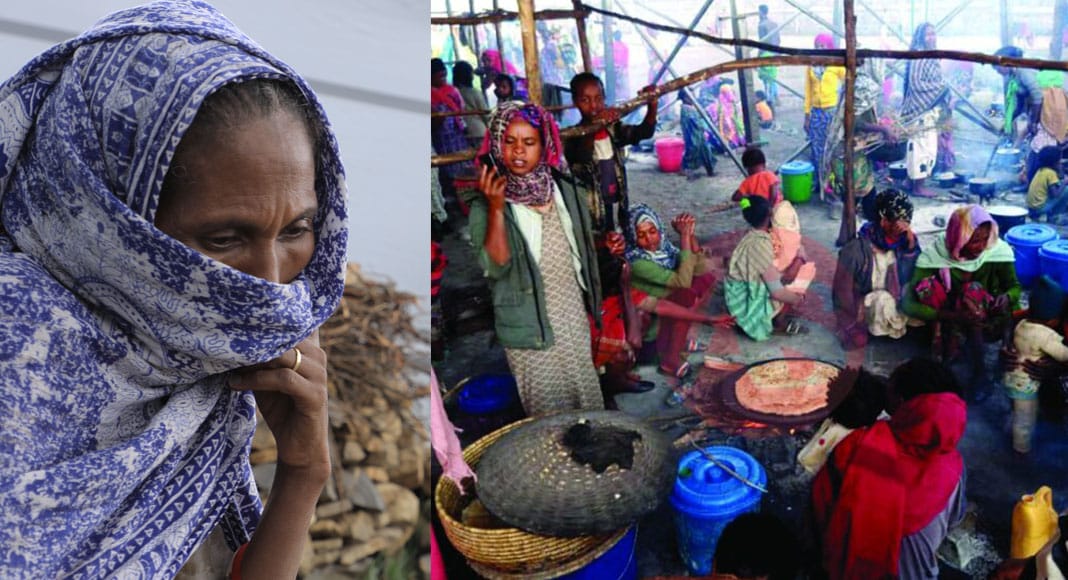
A report published by the Ethiopian Human Rights Commission (EHRC) raises alarm over the lack of government effort to return the millions of internally displaced persons (IDPs) languishing in camps and shelters across the country to their homes.
The Commission, which has considered human displacement as a primary area of concerns for the last four years, assessed close to 334,000 IDPs to compile the report, which covers the year leading up to June 2024.
The report stated that while ensuring comprehensive protection and support for IDPs requires a comprehensive and coordinated approach involving all relevant government institutions, “there is no clearly mandated body with the legal authority to coordinate and oversee support and protection for IDPs”.
The Commission found that attacks by armed groups based on identity, conflicts between government forces and armed groups, and unresolved political and administrative issues forced more than two-thirds of the IDPs it surveyed from their homes.
“Most of the displacement in Ethiopia is due to conflict,” reads the report. “It is essential to urgently resolve these conflicts peacefully and to take necessary measures to prevent escalation; addressing displacement sustainably requires focused attention.”
– Advertisement –
The report also stated that displacement caused by natural disasters continues to increase, and priority should be given to pre-disaster prevention and emergency response.
The Commission estimates the number of IDPs in Ethiopia at 3.3 million, with 56 percent of them having been displaced for over a year. Close to a quarter have been displaced for between two and four years, while 11 percent have been unable to return home for more than five years.
The report highllighted that most of the displaced are living in difficult conditions.
The Commission called for structured and long-term solutions to address the challenges facing IDPs and recommended that all stakeholders take responsibility to ensure sustainable solutions based on human rights principles.
EHRC wants to see the rights and participation of IDPs enshrined in the ongoing transitional justice and national dialogue processes.
“Remaining in protracted displacement without sustainable solutions increases their vulnerability to human rights violations, deepens the crisis, and deprives them of the ability to support themselves,” reads the report.
The Commission urged the government to establish an early warning system to prevent displacement, protect sites with civil and humanitarian standards, ensure the protection of sites from attacks by armed groups, and coordinate with humanitarian organizations to uphold the security and dignity of IDPs.
EHRC emphasized the need for a “whole of government” approach that would coordinate the involvement of local and national authorities to ensure effective protection and support for IDPs.
The report comes as Ethiopia continues to grapple with internal conflicts, notably in the Amhara and Oromia regions, which have forced thousands of civilians to flee their homes, seeking safety and basic necessities.
Close to a million people in Tigray have also been unable to return to their homes following the war that ended two years ago.
.
.
.
#Rights #Commission #Criticizes #Lack #Response #Widespread #Internal #Displacement
Source link











